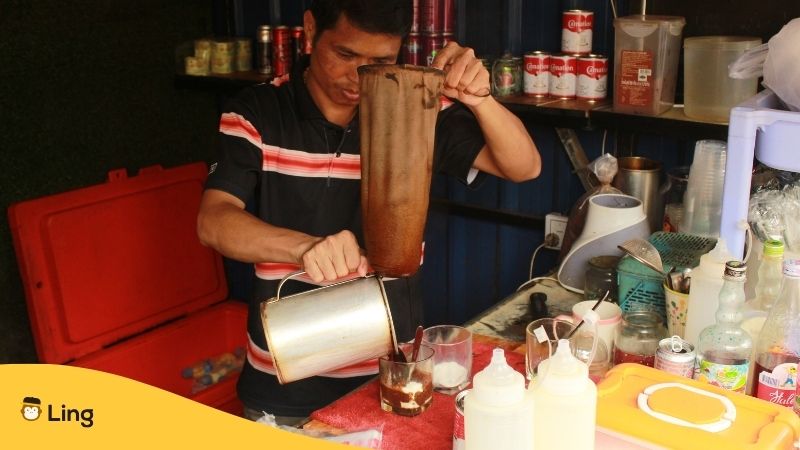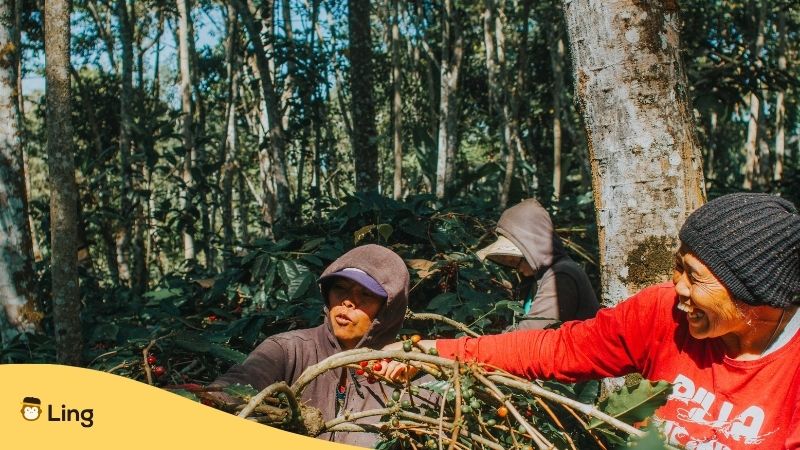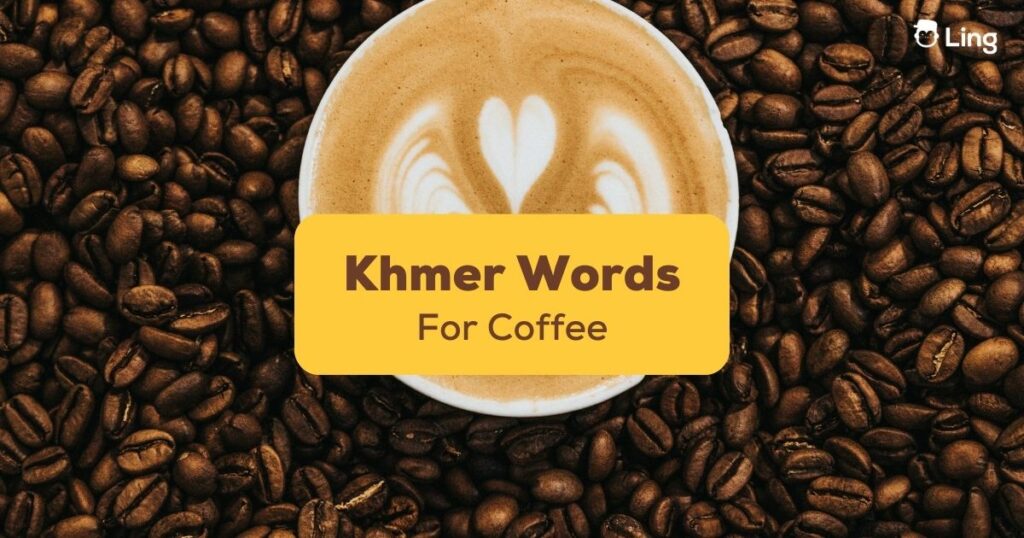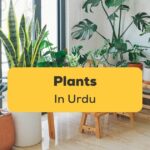Coffee culture in Cambodia has experienced something of a boom over the past decade or so causing a need for more Khmer words for coffee to be added to the Khmer dictionary. Although the number of coffee vendors across the country has rocketed in recent years, coffee culture has been brewing for centuries, blending traditional Khmer flavors with the modern international coffee scene.
So, settle back with a cup of Joe and join us while we explore the Khmer words for coffee, delve into the unique coffee culture of Cambodia, and introduce you to some common coffee phrases in the captivating Khmer language.
Khmer Words For Coffee
Thankfully, the growing popularity of coffee in Cambodia hasn’t quite yet resulted in the ridiculous array of recipes to be found in the coffee shops of London or New York. There are however a few popular options on offer in the coffee bars and coffee carts of Phnom Penh and Siem Reap. Here are a few to practice:
Coffee – Kafe (កាហ្វេ)
Pronunciation: Kaa-feh
When you step into a coffee shop in Cambodia, you’ll often hear the word “Kafe” used to refer to coffee. Like its neighbours in Southeast Asia, Cambodia has borrowed some of the words in its lexicon from the West, and “Kafe” is taken from the French word “Café.”
Black Coffee – Kreay (ក្រេច)
Pronunciation: Kray
If you prefer your coffee black, you might ask for “Kreay,” which means “black coffee.” This Khmer word will help you order a drink without any milk or sugar.

Coffee With Milk – Kafe Somtou (កាហ្វេសូមតូ)
Pronunciation: Kaa-feh som-too
For those who enjoy a sweeter and creamier coffee experience, “Kafe Somtou” is the phrase to remember. It translates to “coffee with milk,” perfect for those who prefer a dash of dairy in their cup.
Strong Coffee With Milk – Kafe Somtou Tror Kong (កាហ្វេសូមតូត្រកុង)
Pronunciation: Kaa-feh som-too tror kong
If you like your coffee strong, you can request “Kafe Somtou Tror Kong,” which means “strong coffee with milk.” This ensures that you get that caffeine kick you crave. Do be aware that when you ask for milk it is more likely to be sweeter condensed milk that is poured. This gives the bitter Cambodian blends a creamier, more saccharine taste (although it is likely that the ground beans came from across the border in Vietnam).
Iced Coffee – Kafe Kat Chhnear (កាហ្វេកាត់ឆ្នាំ)
Pronunciation: Kaa-feh kaht chh-near
If you’re looking for iced coffee, ask for “Kafe Kat Chhnear.” This is a popular choice in Cambodia, especially on hot days when a chilled coffee can be incredibly refreshing.
Coffee With Sugar – Kafe Psaeng (កាហ្វេផ្សេង)
Pronunciation: Kaa-feh pseng
Coffee with sugar is often referred to as “Kafe Psaeng.” This term is handy if you prefer your coffee on the sweeter side.

Coffee Culture In Cambodia
Coffee made its way to Cambodia as it did the rest of Southeast Asia, via the French trade ships visiting the region in the 19th Century. Although Cambodia does grow its own coffee beans, they are the bitter Robusta beans grown in the Elephant Mountains, Phnom Kong Rei Mountain range, and Cardamom Mountains. The lighter, smoother, more desirable Arabica coffee beans in your coffee are most probably imported.
Many roasters in Cambodia using the Robusta beans will have closely guarded roasting recipes that include ingredients such as butter and margarine that give the beans a richer, smoother flavor making them more palatable to those who prefer their Arabica at breakfast. A quick warning for the coffee connoisseur – flavorings like chicory and caramel may be added to soybeans and corn, and ground up to mimic coffee. If you want to be totally sure you are being served the proper thing, choose a coffee emporium where they grind their own beans fresh and in front of you.
Coffee Shops
Cambodia boasts a thriving coffee shop scene where the good stuff is served, from cozy, family-run establishments to trendy, modern cafes in urban areas. Many coffee shops serve a fusion of traditional Khmer coffee and international favorites, making them ideal places to experience the local coffee culture. Coffee shops are often popular gathering places for friends and family. People come together to catch up, discuss business, or simply enjoy each other’s company over a cup of coffee.
Street Coffee Vendors
Street-side coffee stalls are a common sight in Cambodia. These vendors serve quick and affordable coffee to passersby, making coffee accessible to everyone. Keep an eye out for vendors using traditional methods of coffee preparation that are still prevalent. One such method is “sock coffee,” where coffee is brewed using a cloth filter placed in a metal ring.
Coffee Farms
Cambodia is home to lush coffee plantations, particularly in the Mondulkiri and Ratanakiri provinces. Visitors can tour these farms to see the coffee production process firsthand from the harvesting and the beans being sun-dried to the grinding and the hot water being added to create a tasty beverage.
Common Khmer Coffee Phrases
| English | Khmer | Pronunciation |
|---|---|---|
| May I have a cup of coffee, please? | សូមផ្តល់កុងភ្លេច។ | Som pdaal kong plech |
| I like my coffee black | ញុំចូលក្រេច។ | Khnhom chol kreay |
| Can I get a latte with almond milk? | ញុំចង់ទទួលលាតតឺតមាយ។ | Khnhom chong ttor latte maoo |
| I prefer my coffee iced | ញុំចូលកាត់ឆ្នាំ។ | Khnhom chol kat chhnear |
| I like my coffee with a little sugar | ញុំចូលកាហ្វេជាមួយស្ករទៀត។ | Khnhom chol kaa-feh chaa muoy s’kar tii |
| Is this coffee strong? | កាហ្វេនេះមានខ្លាំងទេ? | Kaa-feh ney mien khlaang te? |
Whether you’re sipping coffee at a bustling street vendor or enjoying a carefully crafted brew at a chic café, the Cambodian coffee culture is sure to leave you with a lasting impression of welcoming warmth.
Learn Cambodian With Ling During Your Next Coffee Break
If you are looking to improve your Khmer, why not give Ling a try? Download it to your smartphone from either Google Play or the App Store and all your Khmer language learning needs will be there for you next time you pop the kettle on for a cuppa.



































































